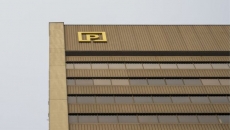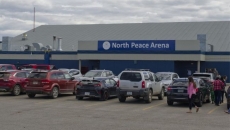Inequalities are baked into British Columbia's justice, health and child-welfare systems and rights issues in the province abound in schools, hospitals and workplaces, says the province's human rights commissioner.
Kasari Govender's office released its latest report Wednesday, spotlighting human rights issues people face when they come into contact with 10 provincial systems, especially Indigenous people, women and other marginalized groups.
She said the report was based on "deep listening" to the experiences of people in communities affected by entrenched inequalities, such as Indigenous Peoples and their long-standing disproportionate clashes with criminal justice and child-welfare systems.
"What we need to do is to shift our thinking to understanding how our laws, our policies, our systems, impact people disproportionately and that's the kind of analysis that we've used here," Govender said Wednesday during a news conference.
"Indigenous children are far over represented and Indigenous families are far over represented in the child-welfare system. That's not because there's discrimination on the face of the law necessarily, but it's how the law operates."
Govender said housing inequalities amid the affordability crisis came into stark view while producing the report entitled "Rights in Focus; Lived Realities in B.C."
"In our research unaffordable, inaccessible and inappropriate housing quickly and unsurprisingly rose to the top of the human rights issues facing British Columbians," she said. "B.C. residents face the highest rate of unaffordable housing in Canada. This is part of why homelessness and encampments are on the rise"
Unaffordable housing, she said, is particularly hard on women and girls who are at risk of violence on the street, and choose to stay with abusive partners with no other affordable options for housing.
The report says thousands of people have been forced into homelessness in the province due to a "collision of market forces with inadequate social support."
Govender said her office will produce rights-in-focus reports every three years, examining human rights issues tied to everyday lives of people who need homes, health care and education, and for those who face inequalities in the criminal justice and child-welfare systems, among others.
Govender was joined by academics and advocates at the news conference who discussed the intersections between different systems and the human rights issues that spring from them.
Raji Mangat, executive director of West Coast Legal Education and Action Fund, said the report outlines inequities that show "how different people are valued differently."
"Some of us are trusted and heard, while others are doubted and dismissed. Some of us are warmly welcomed and supported. We can ask for what we need and feel safe doing so, but others are scrutinized constantly, under surveillance and policed, all under the guise of safety," she said.
Mangat said the legal and child-welfare systems police families and judge them harshly as they navigate poverty and inadequate health and housing supports, "yet these systemic failures are placed squarely on the shoulders of families and kinship caregivers."
Zoe Craig-Sparrow with the Indigenous advocacy group Justice For Girls said the report also shows how climate change is an "unchecked threat to the foundation of human rights."
"Environmental degradation and climate change does not affect all people equally," she said. "It amplifies the harms of colonization, genocide, violence and systemic racism that Indigenous people already face, threatening our culture, health, territory, land, waters and rights."
Dawn Hemingway, a professor emerita at the University of Northern British Columbia, said structural issues and discriminatory practices "are embedded in our socio-economic system," and prevent people from having their "basic needs" met.
"We live in a world that has the resources and the know how to do precisely that," she said. "For me, we are one humanity. Our collective future lies in ensuring the rights of everybody."






